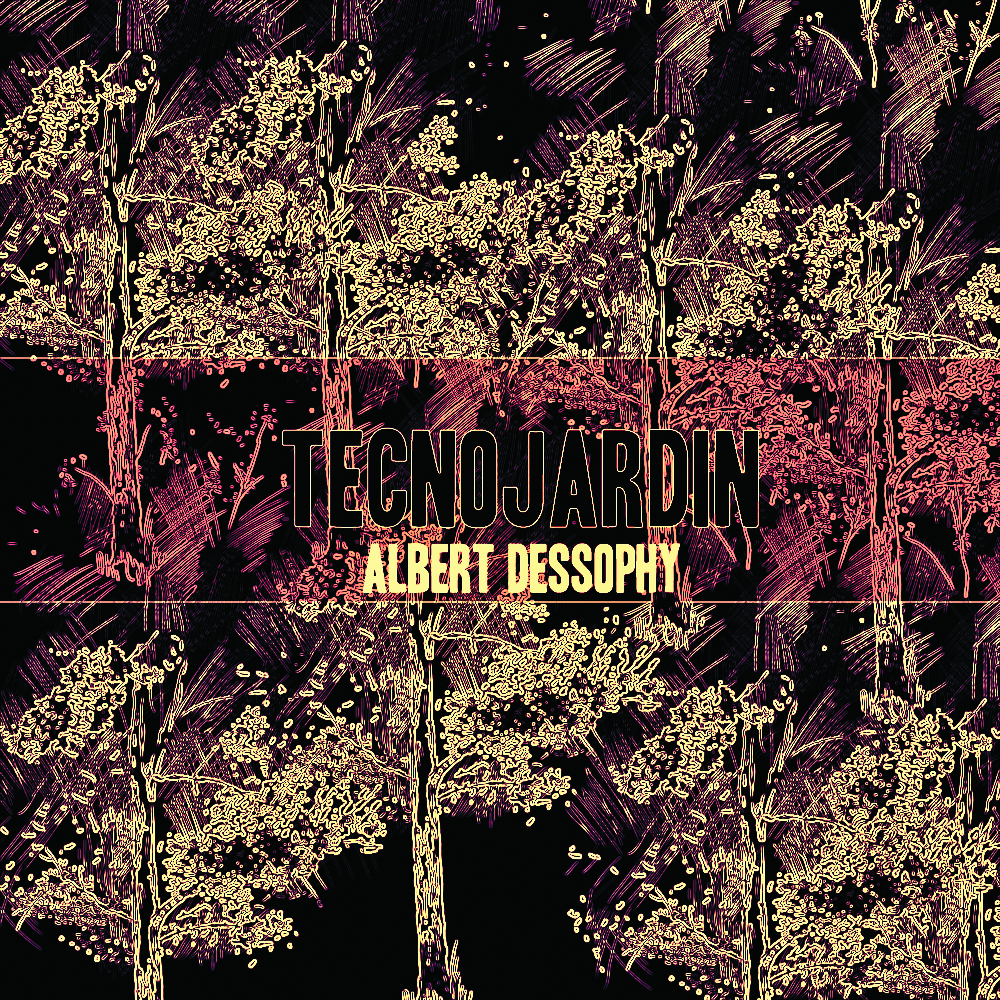Concept albums typically use their chosen theme to explore an idea, and if this isn’t done lyrically, then the next stop is in the music, as an artist will try to evoke feelings from a particular time, place or whatnot. But in the case of Mexican musician Albert DesSophy and his latest album, Tecnojardín, the music itself is borne of the concept. Beginning with an environmental concept where technology serves nature, DesSophy began the songs on Tecnojardín with acoustic “natural” instruments before letting technology grab hold. The implied goal is for the technology (electronic instruments) to move the song forward and make the “organic” song better. It’s an interesting and fresh approach to songwriting, and the end result is an album that succeeds in creating a sound that relies on that juxtaposition.
Electronic and acoustic instruments are nothing new in DesSophy’s — or really any — world, as his two previous albums mix both elements to varying degrees. 2010’s Across The Void focused more on the electronic side of things, which made sense as the album was a tribute to Kid A, which itself is a game-changing masterclass in how an organic band can work with electronics. Void’s follow-up (last year’s TheSecondMoon) introduced more live instruments, and while it had a few good moments, it suffered for not being able to find a comfortable place to sit. Tecnojardín could be considered more similar to TheSecondMoon with its open mix of instrumentation; but this time around, things are a bit more refined.
In a nutshell, there are four elements to an Albert DesSophy song here, which includes a drum machine, some kind of electronic arpeggio, an acoustic guitar, and DesSophy’s vocals. The artificial percussion and the arpeggios can work well together with guitars and DesSophy’s dry voice, but to varying degrees. “Sola (Te Puedo Ver),” with synthetic handclaps that recall The Knife and its slow plucked chords, makes for a good atmosphere, but DesSophy’s voice comes off as separated and lost, especially when he goes for the higher notes. “iT-Rex,” on the other hand, melds a slinky bass line with bright flourishes in a move that once again brings out the Radiohead comparison, but like in the past, it all plays out like a charming homage rather than being derivative.
It’s the contrast, though, that makes for interesting listening. The electronics are tight as could be hoped for, and in a more general sense, seem to fit DesSophy best. Against these sounds, his acoustic guitar jangles away loosely, filling in any space between. One sounds sturdy; the other sounds like it could fall apart at any moment. The best song to see this on is a track like “Under Mist” which moves in a similar way to “Photon Burst” from TheSecondMoon. There’s a mystical melody wavering away to begin with, but before long DesSophy starts strumming, simultaneously ruining the calm and making the song a bit human. It’s a hard balance to keep, and again DesSophy is successful only to varying degrees. On “Cut Short,” for example, he blurs the line with streaks of distortion, but stumbles over himself in with a spoken-word segment. As awkward as the end result is, Tecnojardín succeeds best when it provides a human touch amidst its chaos.
If you’re fond of the contrast then you’ll find Tecnojardín a solid album, but one might also listen to it desiring more active moments. While TheSecondMoon had a variety of tempos and styles going for it, Tecnojardín consist more of slower songs that verge on something resembling a ballad. Some are fine, if not great, such as the slowing burning “Kirie,” or the nifty closing track “Resplandor,” which manages to go one step further by contrasting slow melodies with faster paced ones. And the album does offer changes in pace, but a few more of them wouldn’t have been a bad thing, especially considering that the two most active tracks here have you pining for more of the same. “Adriana” produces some interesting sounds and textures as tries out some staccato keys whereas “Fight!” offers the album’s single best moment during its brief instrumental middle section, which has DesSophy sounding truly dynamic for what might the first time.
And even if you’re not a huge fan of DesSophy’s style, you’ll still likely agree that, for the most part, Tecnojardín is a sound collection of songs. Void succeeded as an album because of its coherency, and in a way Tecnojardín does have this too, but it’s not quite as clear, and not quite as strong. Ironically, considering the original concept of starting with natural instruments and then adding the electronic afterwards, most of the songs sound like they were created the other way around. Inadvertently, DesSophy has turned the concept on its head, which, in the end, is one of the reasons it’s interesting to work with one in mind: you never know where you might end up.

